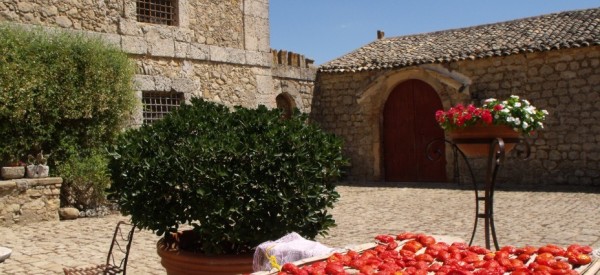Agritourism is a concept that remains something of an unknown to many holidaymakers – and it’s hardly surprising with so many different types of activities coming under this umbrella term. Some people might imagine waking up before dawn to help a farmer in milking his herd; others might have romantic notions of working farm holidays where they pick fruit and crush grapes or olives. So what exactly is agritourism?
In the broadest sense, agritourism is defined as any agricultural activity that is open for visitors and that provides enjoyment and/or education. Dude ranch stays in the American west, visits to estancias in Argentina and Australian outback adventures are perhaps some of the more exotic examples of agritourism that first spring to mind, but even a school visit to a local farm falls under the term agritourism.
In Sicily farmhouse holidays are becoming increasingly popular and with many farmers on Italy’s large southern island looking to tourism to boost their income, the island is one of the leading European destinations for agritourism.
As well as the attraction of staying on a farm, there’s a growing awareness of the importance of knowing more about the journey of our food from farm to dinner table. A regular flow of TV shows have been telling us about the dangers of processed food and the benefits of organically sourced ingredients.
At the same time there is a growing interest in holidays that leave a smaller environmental footprint. Typically agritourism holidays will involve staying in a farmhouse where the whole or a part of the property has been converted to accommodate guests. Many properties boast a pool and offer bike hire or hiking trail advice; an active holiday fits in well with the overall theme of healthy living.
Farms are by definition out in the country and few offer the chance to walk to nearby restaurants and bars. While it’s true that you’ll almost certainly need a car to make the most of a farm stay, most properties provide some or all meals (at least breakfast) and focus on home produce. In some cases the holiday accommodation includes a kitchen allowing guests to cook their freshly-sourced food in their own way. Many farms try to provide to give their guests every reason to stick around with some offering activities such as horse-riding, wine tasting and cookery classes.
At a time when running a profitable farm is proving harder than ever, it’s quite understandable that farmers are choosing to welcome visitors onto their properties. The farmer gets a boost to his income by embracing agritourism, while the visitors can relax in a peaceful environment and enjoy a little of the good life that for some of us seems so hard to stick to in our everyday lives.





